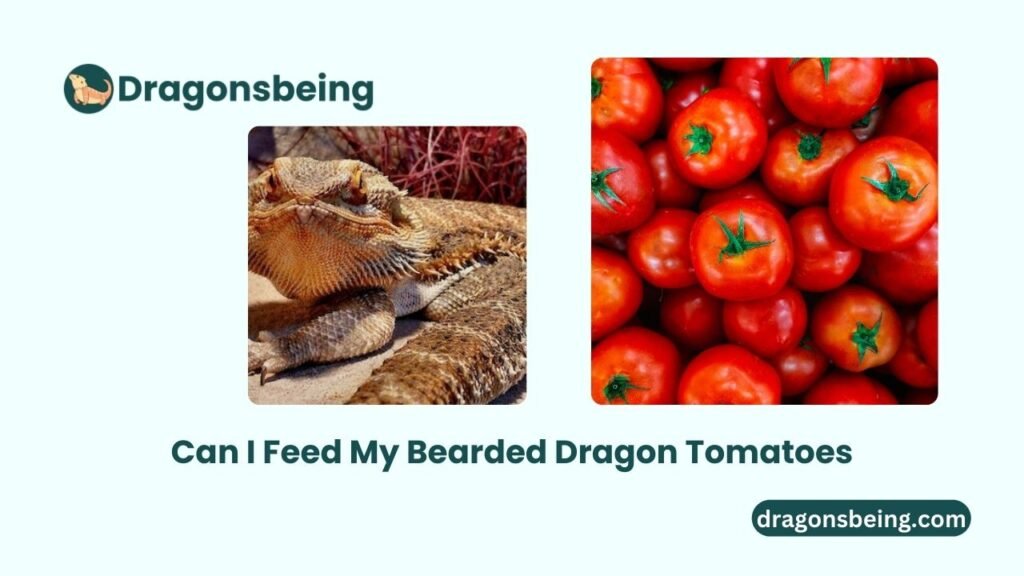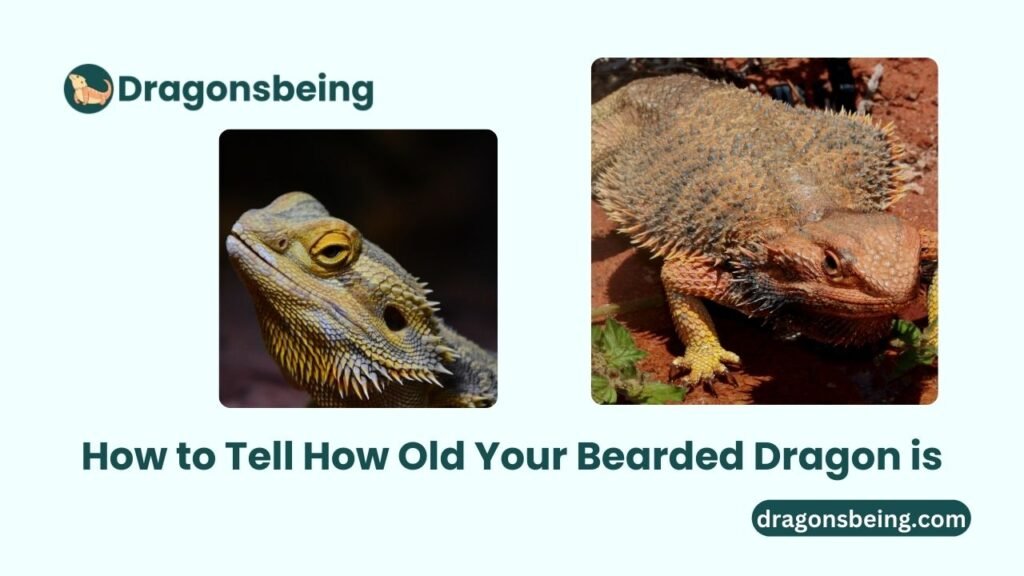Yes, you can feed your bearded dragon tomatoes, but only in moderation. High acidity and sugar content can upset their digestive system.
Feeding your bearded dragon a varied diet is crucial for their health. While vegetables and fruits provide essential nutrients, not all are safe. Tomatoes can be a tempting treat due to their vibrant color and flavor. However, their high acidity can lead to digestive issues if fed too often.
Always prioritize a balanced diet rich in leafy greens and insects. Introducing new foods gradually helps monitor any adverse reactions. Understanding what foods are safe and beneficial ensures a happy, healthy bearded dragon. Careful feeding habits will contribute significantly to your pet’s overall well-being.
Introduction To Bearded Dragon Diets
Bearded dragons have unique dietary needs. Understanding their diet helps keep them healthy. They require a mix of insects, vegetables, and fruits. Knowing what to feed them is essential for their well-being.
Essential Nutrients For Health
Bearded dragons need a balanced diet. Here are the key nutrients:
- Protein: Vital for growth and energy.
- Calcium: Supports bone health and prevents metabolic disease.
- Vitamins: Essential for immune function.
- Fiber: Aids digestion and gut health.
Here is a table showing suitable food sources:
| Food Type | Examples | Nutritional Benefits |
|---|---|---|
| Insects | Crickets, Mealworms | High in protein |
| Vegetables | Collard Greens, Bell Peppers | Rich in vitamins |
| Fruits | Blueberries, Strawberries | Provide antioxidants |
Common Dietary Misconceptions
Many people misunderstand bearded dragon diets. Here are some common myths:
- All vegetables are safe: Not all veggies are healthy. Avoid starchy ones.
- Fruits are the main diet: Fruits should be treats, not staples.
- Insects are optional: Insects are crucial for protein intake.
Understanding these misconceptions helps ensure a healthy diet. Always research before introducing new foods.
Tomatoes In A Nutshell
Tomatoes are popular fruits known for their bright color and juicy texture. Many people enjoy them in salads and sauces. But can you feed them to your bearded dragon? Let’s explore this topic further.
Nutritional Profile
Tomatoes offer various nutrients. Here’s a quick look at their nutritional profile:
| Nutrient | Amount per 100g |
|---|---|
| Calories | 18 |
| Protein | 0.9g |
| Fat | 0.2g |
| Carbohydrates | 3.9g |
| Fiber | 1.2g |
| Vitamin C | 13.7mg |
Tomatoes are rich in water. They also contain some vitamins and minerals. Be careful with their high acidity.
Risks And Benefits
Feeding tomatoes to bearded dragons has both risks and benefits.
- Benefits:
- Tomatoes provide hydration.
- They offer some vitamins.
- They can add variety to their diet.
- Risks:
- High acidity can upset their stomach.
- Too much can lead to diarrhea.
- Solanine in green parts is toxic.
Always feed tomatoes in moderation. Monitor your dragon’s reaction. Healthy choices keep your pet happy.
The Great Debate: Feeding Tomatoes To Bearded Dragons
Feeding tomatoes to bearded dragons is a hot topic among pet owners. Some argue it’s safe, while others strongly disagree. Understanding both sides helps make an informed choice.
Pros Of Including Tomatoes
- Rich in Vitamins: Tomatoes contain vitamin C and vitamin K.
- Hydration: They have high water content, which keeps dragons hydrated.
- Antioxidants: Tomatoes are packed with antioxidants that promote health.
- Taste Appeal: Many dragons enjoy the sweet flavor of tomatoes.
Cons To Consider
- High in Acidity: Tomatoes can cause stomach upset in some dragons.
- Calcium Deficiency: High phosphorus levels may hinder calcium absorption.
- Potential Allergies: Some bearded dragons may be allergic to tomatoes.
- Moderation is Key: Too many tomatoes can lead to health issues.
Consult with a vet before adding tomatoes to your dragon’s diet. Balance is crucial for their overall health.
Safe Feeding Practices
Feeding your bearded dragon tomatoes requires careful attention. Safe feeding practices ensure your pet stays healthy. Follow these guidelines for a balanced diet.
Portion Control
Control the amount of tomatoes you feed. Too much can cause digestive issues. Here are some tips for portion control:
- Limit tomatoes to small pieces.
- Mix with other safe vegetables.
- Use tomatoes as an occasional treat.
For example, a small slice is enough. Always monitor your dragon after feeding.
Frequency Of Feeding
Feeding frequency is important for your bearded dragon’s health. Tomatoes should not be a daily food. Follow this simple schedule:
| Age Group | Feeding Frequency |
|---|---|
| Juvenile (0-6 months) | 3-4 times a week |
| Adult (6 months and older) | 1-2 times a week |
Always balance tomatoes with leafy greens and insects. This creates a well-rounded diet.
Preparing Tomatoes For Your Pet
Feeding tomatoes to your bearded dragon requires careful preparation. Properly prepared tomatoes ensure your pet’s health. Follow these simple steps to make tomatoes safe and enjoyable.
Washing And Cutting
Start with clean tomatoes. Follow these steps:
- Wash the tomatoes under running water.
- Use a vegetable brush to remove dirt.
- Cut the tomatoes into small pieces.
Small pieces help your bearded dragon eat easily. Remove seeds if possible. Seeds can be hard for them to digest.
Raw Vs. Cooked
Both raw and cooked tomatoes have benefits. Here’s a quick comparison:
| Type | Benefits |
|---|---|
| Raw | Retains more vitamins and minerals. |
| Cooked | May be easier to digest. |
Choose raw tomatoes for fresh nutrients. Cooked tomatoes can help with digestion. Always serve in moderation. Too many tomatoes can upset their stomach.
Alternatives To Tomatoes
Feeding your bearded dragon a varied diet is essential. While tomatoes can be a tasty treat, they may not be the best choice. Here are some great alternatives to consider.
Vegetables And Fruits
Offering a mix of vegetables and fruits keeps your bearded dragon healthy. Here are some safe options:
- Collard Greens: High in calcium and vitamins.
- Mustard Greens: Another excellent source of nutrients.
- Squash: Soft and easy to digest.
- Bell Peppers: Bright colors attract your dragon’s attention.
- Blueberries: A sweet fruit treat.
- Strawberries: Packed with vitamins.
Supplements For A Balanced Diet
Even with a varied diet, supplements can help fill nutrient gaps. Consider the following:
| Supplement | Benefits |
|---|---|
| Calcium Powder | Supports bone health. |
| Vitamin D3 | Aids calcium absorption. |
| Multivitamin | Ensures overall health. |
Sprinkle supplements on food a few times a week. This helps maintain your dragon’s well-being.
Understanding Bearded Dragon Food Reactions
Bearded dragons react differently to various foods. Some foods may cause problems. Tomatoes are one such food. Understanding how bearded dragons react helps owners make better choices. This section covers signs of food intolerance and when to consult a vet.
Signs Of Food Intolerance
Bearded dragons may show signs of food intolerance after eating tomatoes. Here are common symptoms:
- Diarrhea: Watery stools can indicate a problem.
- Lethargy: Low energy levels may signal discomfort.
- Vomiting: Throwing up food is a serious sign.
- Loss of Appetite: Refusing food can indicate an issue.
- Abdominal Pain: Signs include curling up or hiding.
Watch for these signs after feeding tomatoes. Quick action can help your pet.
When To Consult A Vet
If your bearded dragon shows any of the above symptoms, consult a vet. Prompt action is crucial. Here’s a quick guide:
| Symptom | Action |
|---|---|
| Diarrhea for more than a day | Visit the vet |
| Vomiting more than once | Visit the vet |
| Refusal to eat for two days | Visit the vet |
| Signs of pain or distress | Visit the vet |
Be proactive about your pet’s health. Early intervention can prevent serious issues.
Expert Opinions On Bearded Dragons And Tomatoes
Understanding expert opinions helps in making the best choices for your bearded dragon. Tomatoes spark debate among vets and experienced owners. Some believe they can be safe, while others caution against them.
Veterinarian Recommendations
Veterinarians often provide valuable insights on bearded dragon diets. Here are key points regarding tomatoes:
- High Acid Content: Tomatoes are acidic. This can upset a bearded dragon’s stomach.
- Calcium to Phosphorus Ratio: Tomatoes have a poor ratio. Too much phosphorus can harm your dragon.
- Occasional Treat: Some vets say small amounts are okay. Always monitor for any reactions.
| Aspect | Recommendation |
|---|---|
| Acid Level | Avoid high amounts |
| Calcium Ratio | Consider alternatives |
| Digestive Issues | Watch for signs |
Experienced Owner Insights
Experienced owners share their thoughts on feeding tomatoes. Their advice can guide new owners in making choices.
- Moderation is Key: Many owners offer tomatoes as treats. Small pieces work best.
- Mix with Other Foods: Combine tomatoes with greens. This adds variety to the diet.
- Observe Reactions: Watch your dragon after feeding. Look for any signs of discomfort.
- Start with a tiny piece.
- Monitor for any issues.
- Keep track of your dragon’s preferences.
Integrating Tomatoes Into A Varied Diet
Bearded dragons thrive on a diverse diet. Integrating tomatoes can add variety. Use tomatoes as an occasional treat, not a staple. They offer vitamins but also some risks. Balance is key to keeping your dragon healthy.
Creating A Weekly Meal Plan
Designing a meal plan helps maintain nutritional balance. Here’s a simple weekly plan:
| Day | Protein Source | Vegetables | Fruits |
|---|---|---|---|
| Monday | Crickets | Collard Greens | Strawberries |
| Tuesday | Mealworms | Carrots | Blueberries |
| Wednesday | Dubia Roaches | Squash | Peaches |
| Thursday | Crickets | Green Beans | Tomatoes (small pieces) |
| Friday | Superworms | Bell Peppers | Raspberries |
| Saturday | Crickets | Leafy Greens | Kiwi |
| Sunday | Mixed Insects | Broccoli | Watermelon |
Combining Foods For Optimal Nutrition
Combining various foods boosts nutrition. Offer tomatoes with other veggies. This enhances flavor and texture. Here are some great combinations:
- Tomatoes + Cucumber: Hydrating and crunchy.
- Tomatoes + Bell Peppers: Colorful and rich in vitamins.
- Tomatoes + Leafy Greens: Nutrient-dense and fibrous.
Always chop tomatoes into small pieces. This prevents choking hazards. Monitor your bearded dragon’s reactions. Some may love tomatoes while others might not. Adjust the diet based on your dragon’s preferences.
Conclusion: Making Informed Decisions
Feeding your bearded dragon tomatoes requires careful thought. Understanding the risks and benefits helps ensure their health. Let’s explore how to balance these factors.
Balancing Risks And Rewards
Tomatoes can be a tempting treat for bearded dragons. However, they come with both risks and rewards.
| Aspect | Details |
|---|---|
| Benefits |
|
| Risks |
|
Weighing these factors helps determine if tomatoes fit in your dragon’s diet. Moderation is key. Always observe your pet after introducing new foods.
Continued Research And Learning
Stay updated on bearded dragon care. New information emerges regularly. Here are some ways to continue your education:
- Read books by reptile experts.
- Follow reputable blogs and forums.
- Join local reptile clubs or online communities.
- Attend veterinary workshops on reptile care.
Knowledge is crucial for providing the best care. Always be open to learning more about your pet’s needs.
Frequently Asked Questions
Can Bearded Dragons Eat Tomatoes Safely?
Bearded dragons can eat tomatoes, but in moderation due to high acidity and sugar content.
What Are The Risks Of Feeding Tomatoes?
Tomatoes can cause digestive issues and may lead to obesity if overfed to bearded dragons.
How Should I Prepare Tomatoes For My Dragon?
Wash tomatoes thoroughly, remove seeds, and chop them into small, manageable pieces for easier consumption.
How Often Can I Feed Tomatoes To My Dragon?
Limit tomato servings to once a month to avoid potential health problems.
What Are Better Alternatives To Tomatoes?
Leafy greens, squash, and bell peppers are healthier, safer options for bearded dragons’ diets.
Conclusion
Feeding your bearded dragon tomatoes can be tricky. While tomatoes are not toxic, they should be given sparingly. Too much acidity can upset your pet’s stomach. Always prioritize a balanced diet rich in greens and insects. Consult a vet for personalized advice on your bearded dragon’s diet to ensure their health.

Hi, I’m Dr. Michelle Mayers, a veterinary professional with a deep passion for animal health and well-being. Over the years, I’ve dedicated my life to caring for animals and helping pet owners better understand their furry, feathered, or scaly companions. On my blog, Dragonsbeing, I share insights, tips, and stories that aim to educate, inspire, and connect with fellow animal lovers. Join me at Dragonsbeing as we explore the fascinating world of veterinary care and celebrate the special bond between humans and animals!


